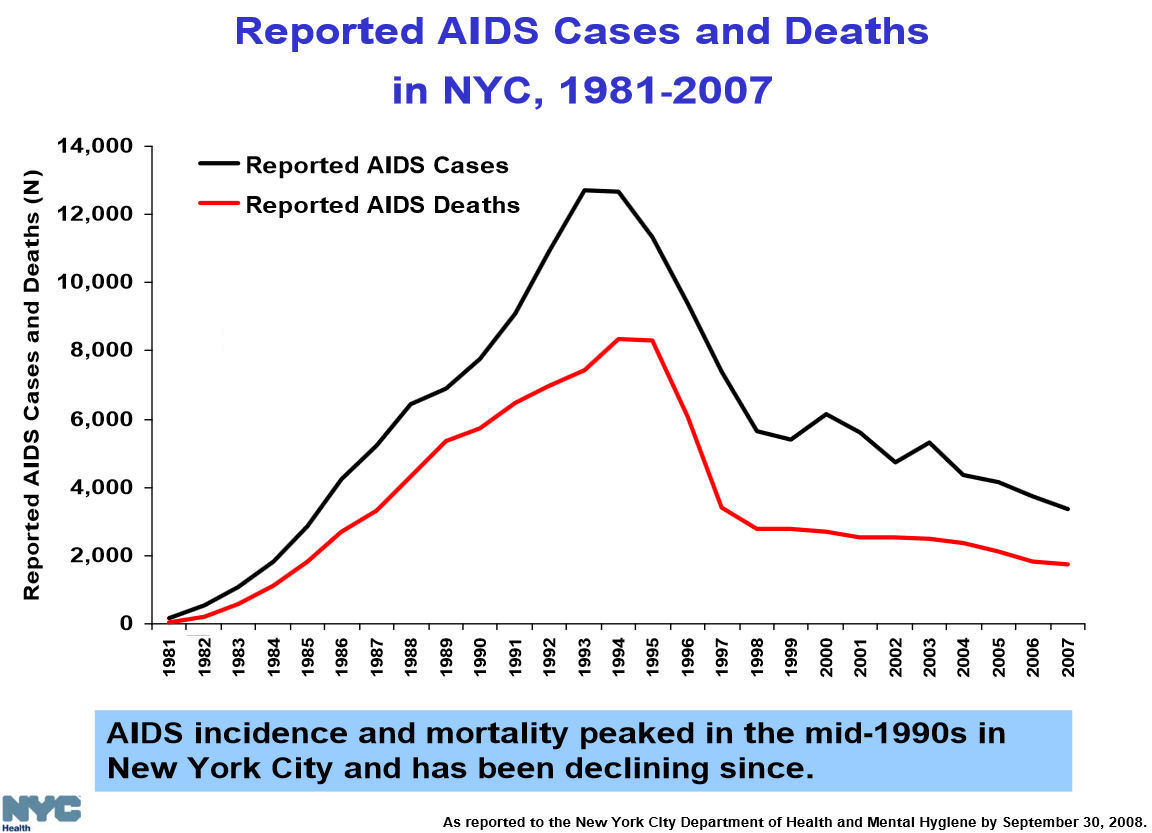
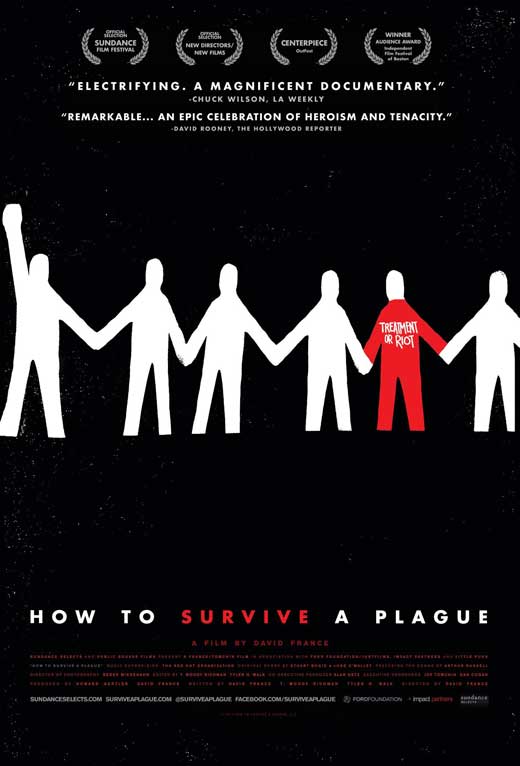
How to Survive a Plague -- Power Point Slides (as a .ppsx Power Point file)
(as a .pdf file - downloads faster)
Early AIDS Timeline (as a .pdf file)
(as a Microsoft Word .docx file)
Early AIDS documents from the CDC and New York Times

|
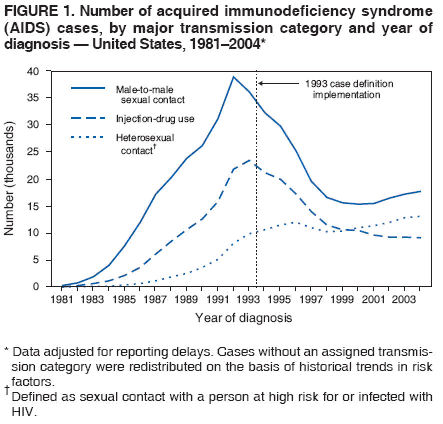
|
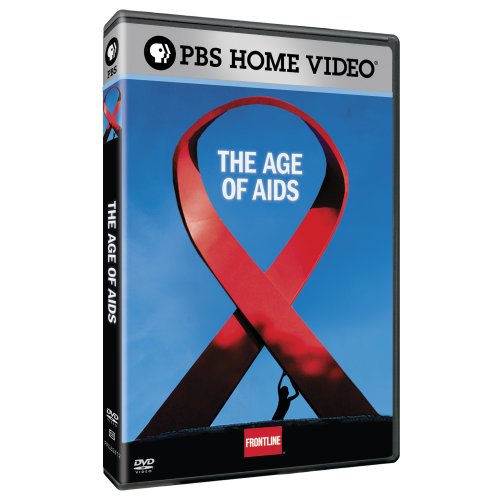
Frontline: The Age of AIDS (2006)
Excellent general history of AIDS from PBS's Frontline. Comprehensive, with world-wide coverage, it is sometimes hard to watch. At about 4 hours long, it is well worth the time.
Frontline The Age of Aids Web Site including a link to watch the entire program on-line.
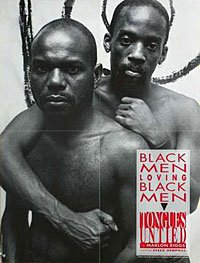
Tongues Untied (1989)
Description from The Advocate magazine's
The Top 175 Essential Films of All Time for LGBT Viewers:
Tongues United (1989): This powerful film, part documentary, part spoken-word poetry, and all about black men loving men, should be required viewing for any intro to queer film studies class. Filmmaker Marlon Riggs enlisted the assistance of black gay men living through the peak of the AIDS epidemic, giving a moving, rhythmic voice to a community that was swept under the political rug for multiple identities considered unpalatable in late-1980s America. Archival footage documenting the revolutionary act of black men loving one another and standing up for equality is poignantly cut with equally moving poetry recited by Essex Hemphill to create an important snapshot of the resilience, wit, and undeniably dynamic nature of this essential part of our community.
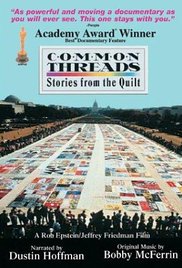
Common Threads: Stories from the Quilt(1990)
Primarily mini-biographies of various people commemorated by squares in the AIDS Quilt. Viewed today, you will understand how important the AIDS Quilt was in the dark days before the anti-viral drugs of the mid-1990's. Directed by Rob Epstein and Jeffrey Friedman, both top gay documentarians. It is narrated by Dustin Hoffman, and won the 1990 Academy Award for Best Documentary, and a 1990 Peabody Award.
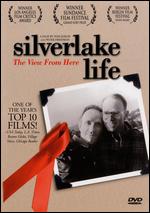
Silverlake Life: The View From Here (1993)
Documentary about two gay partners, Tom Joslin and Mark Massi, as they live their final months with AIDS. It shows the harsh reality of AIDS for one senior couple. Very Intense.
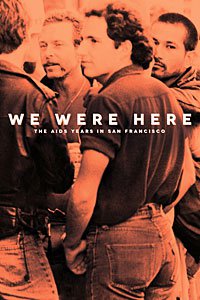
We Were Here (2011)
Description from The Advocate magazine's
The Top 175 Essential Films of All Time for LGBT Viewers:
We Were Here (2011): We Were Here tackles the epic tale of the early years of AIDS in San Francisco through intimate interviews with five people - four gay men and one straight woman - whose experiences with care giving, research, art, activism and personal loss poignantly illuminate an extraordinary time. The film received rave reviews upon its release and sparked a dialogue between survivors of that era and a younger generation of gay men who are often afraid to ask about the AIDS crisis. Director David Weissman described the making of the film to The Advocate, saying, "We cried pretty much every day in the editing room, but there was a point where we realized we weren't crying at sadness, we were crying at beauty. Partly the beauty that was being expressed on-screen but partly a realization of what it might generate, the healing capacity of the film."
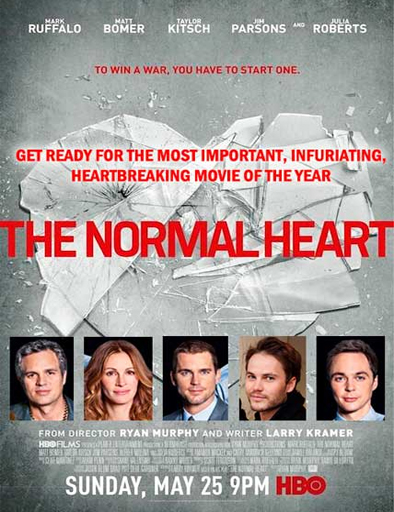
The Normal Heart (2014)
Not really a documentary, but it is essentially a docu-drama. Excellent HBO Film that is Larry Kramer's autobiography. Larry Kramer has been a controversial and difficult gay rights leader since he was instrumental in starting The Gay Men's Health Crisis and ACT-UP in New York City during the 1980's. The movie is based on his play, which he wrote in 1985 and was produced at The Public Theater in New York City at that time, and on Broadway in 2011. Larry Kramer was completely involved in the HBO movie and this movie is a totally faithful adaptation of the play. It also works completely as a movie, whether you know anything about the history or not. You'll be engrossed from beginning to end. This is an insider's look into the very beginning of the AIDS crisis in New York City.
People, Protest, and Progress: Recent Documentaries About LGBT Lives and History
Osher Lifelong Learning
Institute
University of Illinois, Urbana-Champaign
Casey Sutherland, Study Group Facilitator
Scott Badman,
Study Group Facilitator